
Staining concrete floors can add a little something to a drab slab. Learn more about how much stained concrete floors cost and what factors impact it.
It only takes a little TLC to protect your engineered hardwood floors


Engineered hardwood floors add warmth and character to any space, but they need to be correctly cared for to look stunning for years to come. If you're installing new flooring or maintaining a current surface, it's easier than you think to prevent scratches, dullness, and moisture damage. Here are 12 pro tips for engineered hardwood floor maintenance and keeping your floors looking their best.
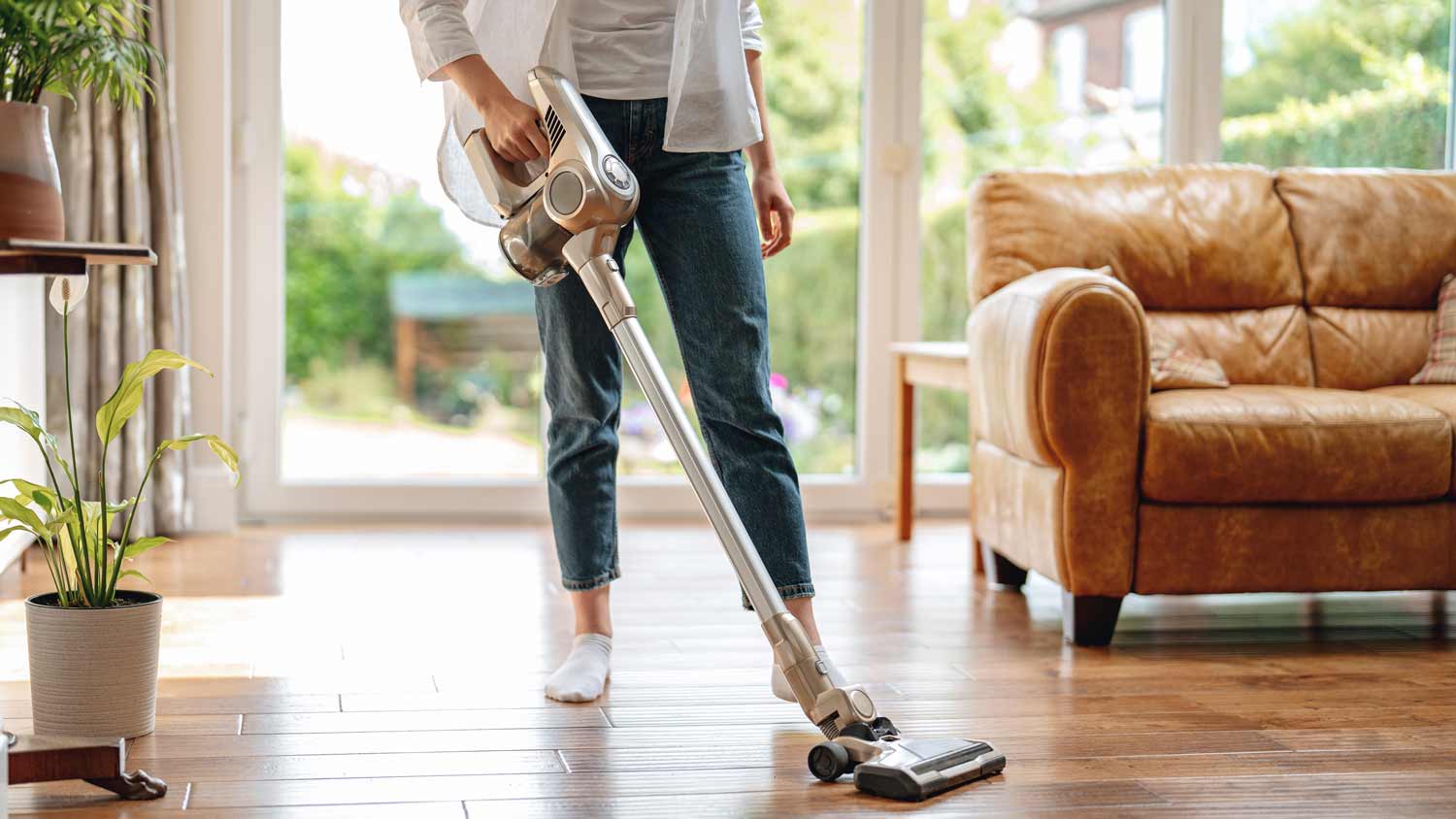
Dust, grit, and dirt act like sandpaper on wood floors. Sweep daily with a hard floor vacuum cleaner or a soft-bristled broom. This simple habit prevents fine scratches from prematurely dulling your floor finish.
Water is among the most significant dangers to engineered hardwood. To clean your floors, use a damp microfiber mop, not a soaking one. Avoid using steam cleaners, as they can push water into seams, causing swelling or warping.
Use engineered hardwood cleaners and avoid using harsh chemicals or all-purpose cleaners, which may remove the finish. Follow your flooring pro’s recommendation or use a pH-neutral hardwood cleaner.
Although engineered hardwood is more water-resistant than traditional solid hardwood, liquid sitting on it will still cause harm. Dry spills immediately with a soft, dry cloth to prevent staining or warping.
Hardwood or other solid wood floors are not good candidates for wet areas of a home. Liquids can soak into natural wood floors and cause finishes to discolor or fail, particularly at the joints between the boards or near the ends of the boards next to the baseboards.
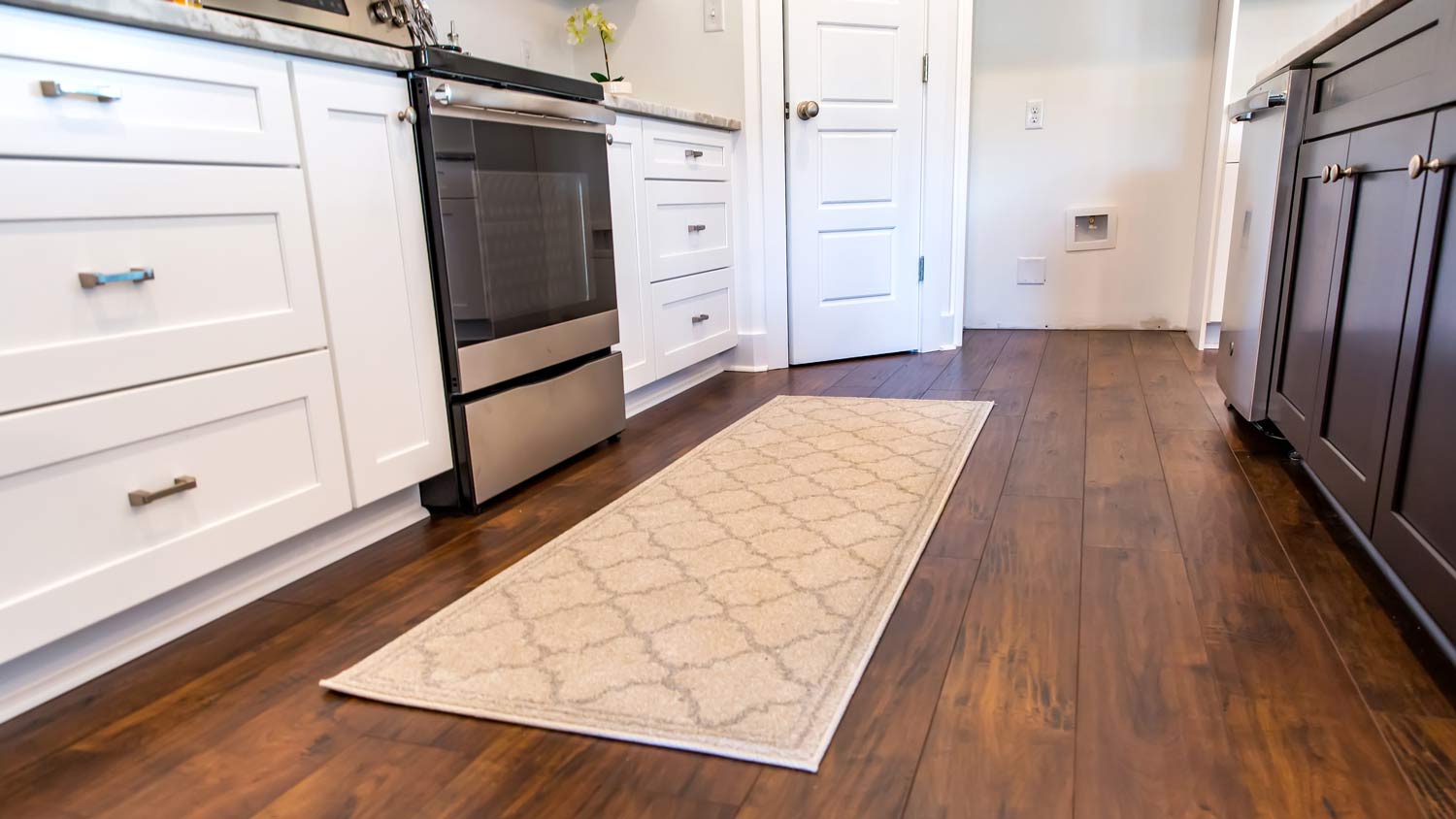
Entryways, hallways, and kitchen work areas take the biggest hit and wear and tear. Place rugs or runners in these areas to reduce scratches and dirt that can become embedded. Use rug pads labeled safe for hardwood to avoid a chemical reaction with the finish.
Scuffs caused by sliding furniture are one of the most common issues with hardwood floors. Put felt pads on the legs of chairs, tables, and other sliding furniture. Check them regularly and replace them as needed.
Engineered wood is more resistant to expansion and contraction than solid wood, but it still reacts to moisture changes. Keep indoor humidity levels between 30% and 50% to avoid gaps or cupping.
High heels, sports cleats, and similar shoes can damage or scratch hardwood floors. Ask family members and friends to enter barefoot to help preserve the condition of your floor.
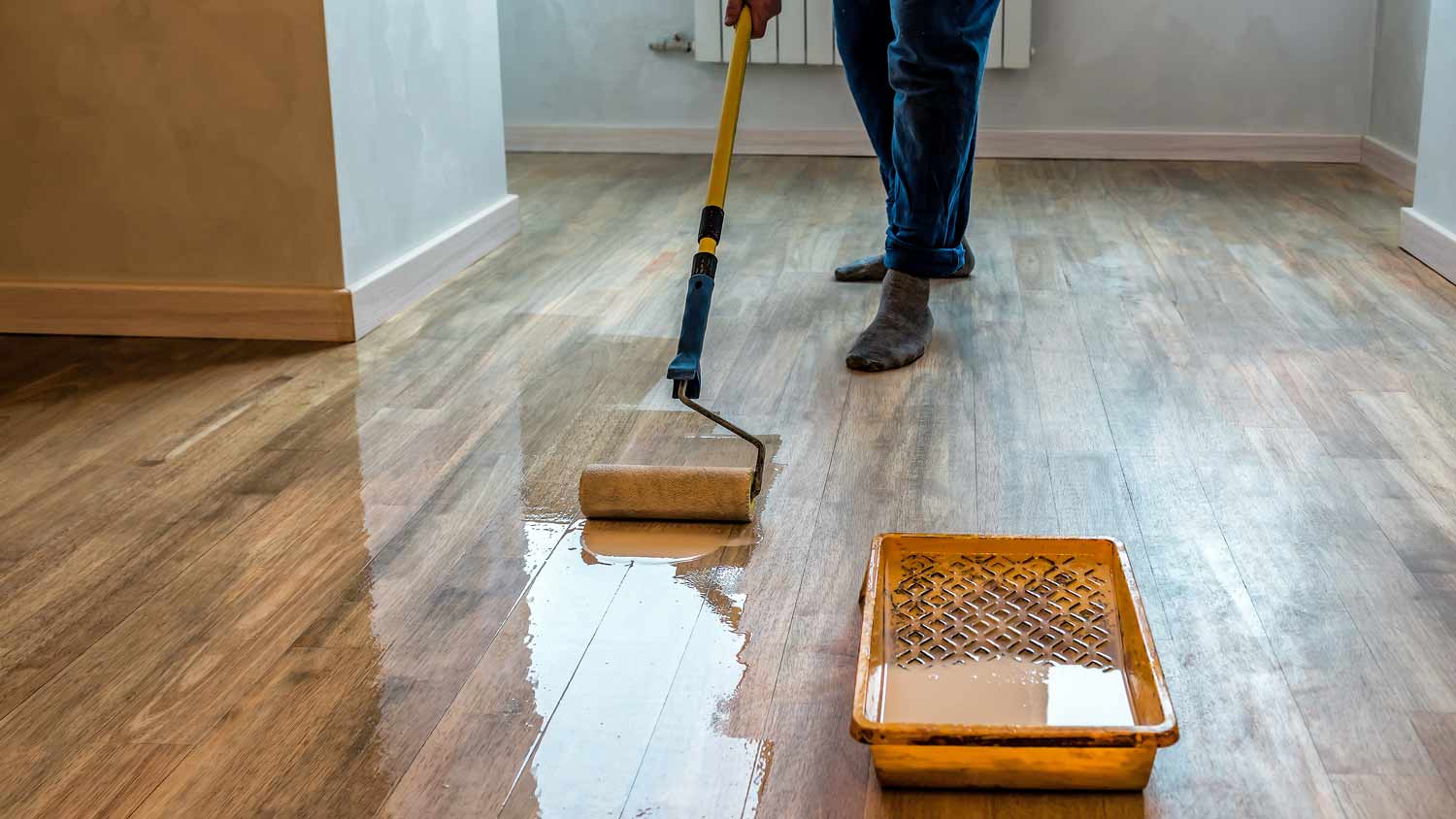
Over time, even well-maintained engineered hardwood may lose its shine. Many floors can be recoated with a fresh layer of finish, without complete sanding, to restore their appearance. If you’re unsure whether your floors are eligible, consult a floor repair company near you.
Unlike solid hardwood, engineered hardwood features a thinner wear layer. Certain pieces can be refinished one or two times using light sanding, but others should not be sanded. Learn about when to refinish hardwood floors before taking on a refinishing project.
If you’re doing renovations, moving furniture, or hosting a big gathering, cover floors with temporary protective sheets. This prevents accidental scratches, paint splatters, or damage from power tools.
Leave heavy cleaning, repair, or refinishing to a pro. If you notice deep scratches, loose boards, or water damage, a floor repair pro can let you know what it will take to make your floor look like new. They can also give you an estimate for engineered hardwood flooring installation costs and make recommendations.
There are only so many times you can refinish engineered hardwood floors, and your pro can let you know if it’s possible for your floor in its current condition.
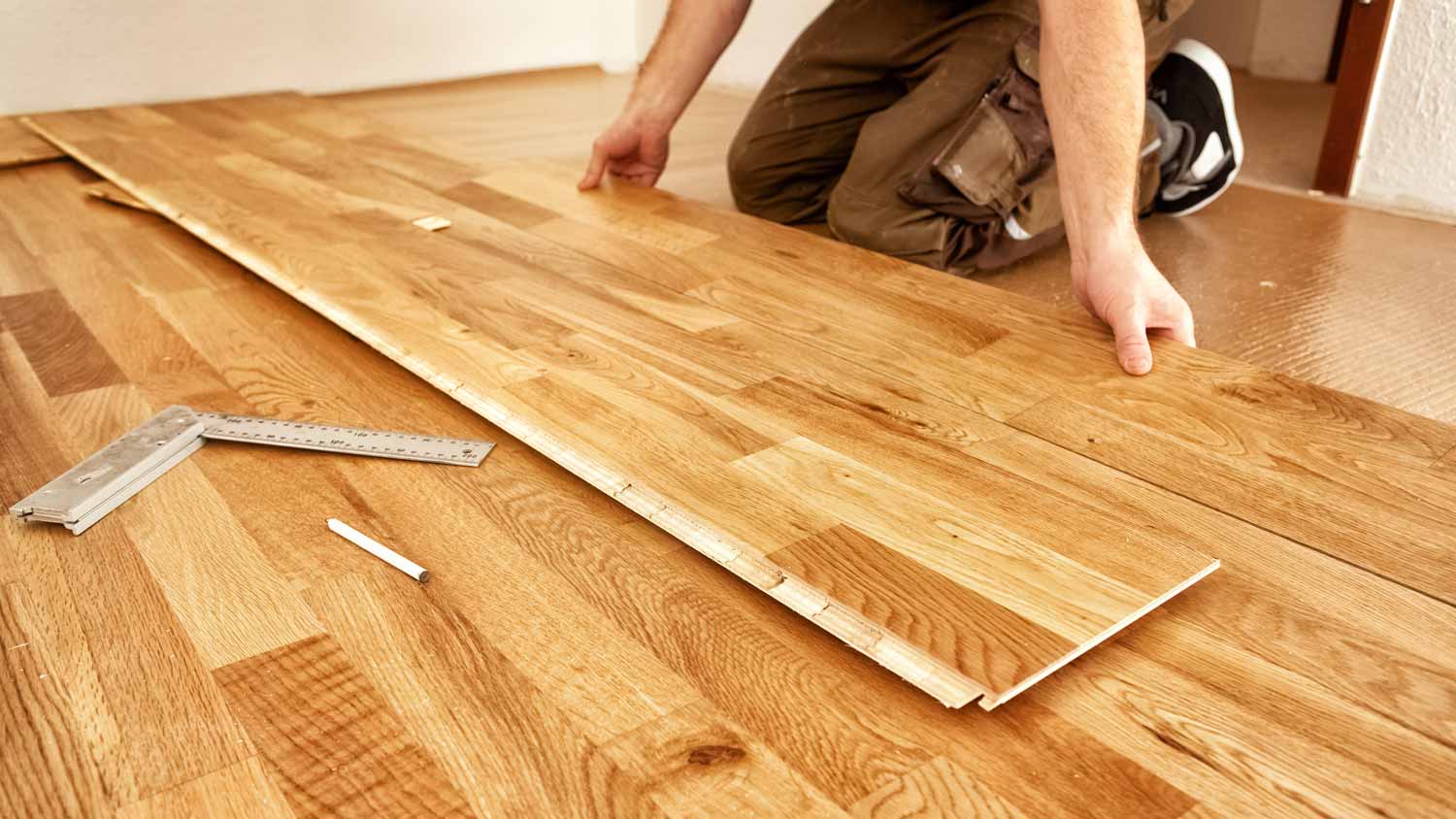
The cost of repairing engineered hardwood floors depends on the type of floor and the severity of the damage. Hardwood floor repairs cost between $500 and $1,725, although prices vary based on materials, local labor rates, and whether the entire floor must be replaced or refinished.
The following are average costs to keep in mind:
Scratches: $1–$8 per square foot
Replacement of damaged boards: $800–$2,000
Refinishing: $3–$8 per square foot
Severe water damage restoration: $100 per square foot
If your floor requires professional attention, compare quotes from local professionals to receive the best value for your home. Learn more about the cost of flooring repair so you can prepare accordingly.
From average costs to expert advice, get all the answers you need to get your job done.

Staining concrete floors can add a little something to a drab slab. Learn more about how much stained concrete floors cost and what factors impact it.
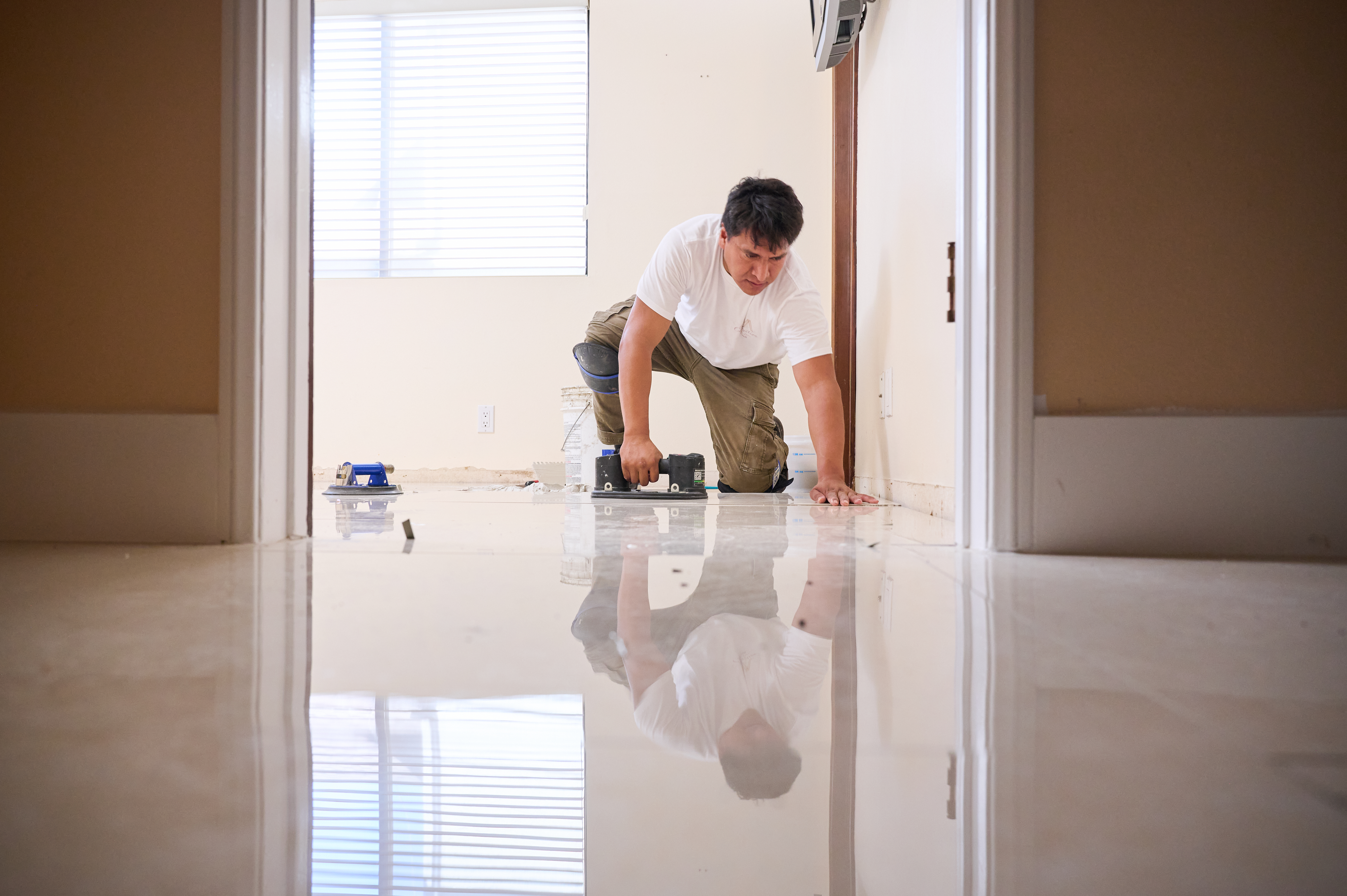
Laminate is a solid choice for many homes because it's durable and budget-friendly. Check out this guide to learn about laminate flooring installation costs.

How much does marble flooring cost? We’ve got the answers about marble cost per square foot, types of marble, DIY cost, and more.

If you’re dealing with warped or creaky floors, it could be a subfloor issue. This guide will show you how to replace a subfloor totally DIY.
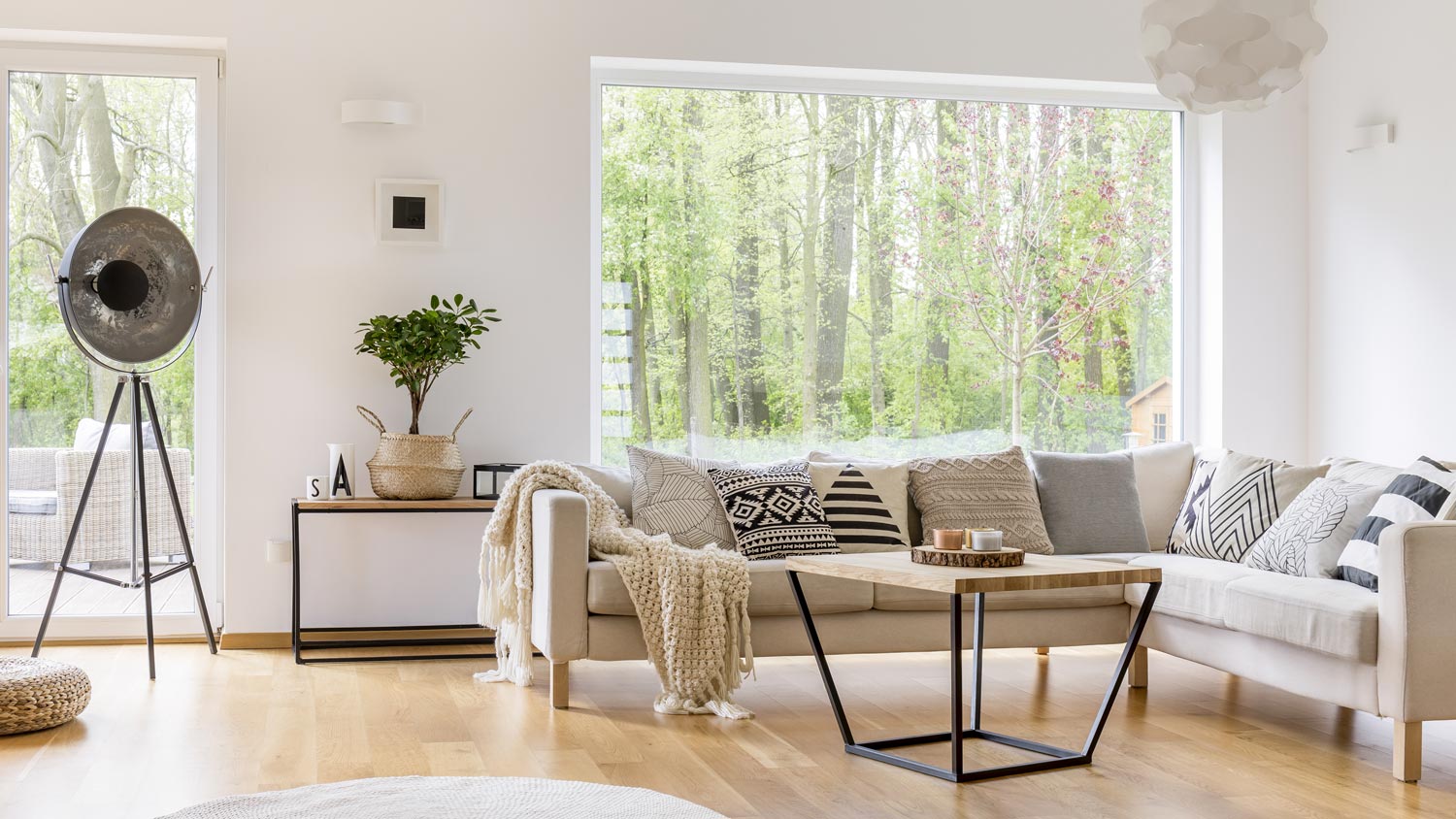
Updated flooring can make any room in your home feel brand new. Explore flooring installation costs in Tampa, FL, from materials to labor costs.

Looking for some durable yet stylish entryway and mudroom flooring options? Check out our list of some of the best types here.